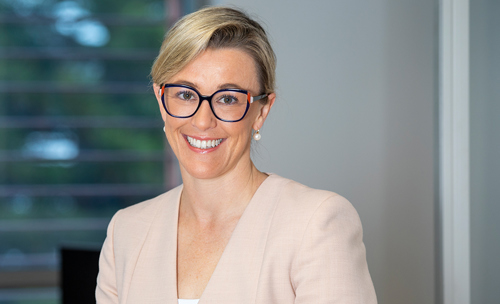What is child inclusive family dispute resolution?

Child-inclusive Family Dispute Resolution is a tailored form of mediation used in family law parenting disputes. Child-inclusive FDR aims to find the child’s voice through a process of developmental consultation and therapeutic conversation with a person called a “child consultant”. In this blog, we look at the role of the child consultant in family law parenting disputes and the process of child-inclusive family dispute resolution.
Separation and divorce impact us all differently. Sometimes, when the conflict drowns out what’s important, we can forget to listen and understand what our children need from us. Parents can be well-meaning by making the bulk of the decisions for their children, however, it’s important that children also have an opportunity to speak about how they feel about the changes in their family.
Family Dispute Resolution (FDR)
Family Dispute Resolution (colloquially known as “FDR”) is a type of mediation available to parties to attempt to resolve family law disputes without going to court.
During FDR, families, with the help of a neutral and accredited FDR practitioner, will discuss the issues in dispute and negotiate different options while being guided to focus on the needs of their children.
You can find out more by reading our blog, “What is Family Dispute Resolution (FDR)?”.
Most FDR practitioners and mediators will offer a form of child-focused FDR (a different process to child-inclusive FDR). This might involve educating parents to understand how the dispute and separation negatively impact their children, both in the long and short term.
So, what does child-inclusive FDR mean?
Firstly, child-inclusive is not a mediation where the children are present and participate alongside their parents.
Similar to child-focused FDR, the primary goal of child-inclusive FDR is to capture the impact of conflict on children and, hopefully, effect change within parents. This has been shown to improve parents’ ability to make child-focused decisions and lead to improved long-term outcomes for families.
The role of child consultants in child-inclusive FDR?
Child consultants are highly skilled and experienced practitioners who work with children and young people. They have either completed training or have extensive experience in understanding children’s emotional and developmental needs and how best to support them during separation.
The child consultant should not pressure the children to express a view or to make any decision between parents or homes. All decision-making falls back onto the parents.
Confidentiality is crucial to the child-inclusive FDR process. Of course, the usual limitations to confidentiality apply. For example, details discovered in child-inclusive FDR may be shared with a third party to prevent a threat to someone’s life or health, the commission of a crime or an allegation of child abuse.
Apart from this type of information, the child consultant will reassure children that nothing will be disclosed from their session without their permission. This is an important tool to gain the child’s trust. You may find that the child consultant discloses very little about what your children have shared with them. Sharing information disclosed in child-inclusive FDR with the parents can be related to high levels of distress in children and/or relentless family conflict.
The process of child-inclusive family dispute resolution
Every organisation/child consultant engaged to undertake child-inclusive FDR will have their own process. However, generally, the process will be as follows:
-
Consent forms
Most organisations that offer child-inclusive FDR will require parents to complete a separate consent form from the ordinary FDR consent forms. These specific consent forms should explain a little bit about the child-inclusive process and any related fees.
-
Intake appointments
Parents may have to attend separate intake sessions from their standard FDR intake appointments. This is because a child consultant will have to make a separate assessment of the appropriateness of child-inclusive FDR.
Child consultants will usually be assessing parental reflective functioning (ie, a parent’s capacity to reflect on mental states such as their own and their child’s feelings, thoughts, and intentions), the relationship between a parent and their children, and the parent’s willingness to resolve the dispute.
-
Childrens’ appointments
The child/ren will attend a separate session with the child consultant to discuss their experience of the separation and conflict. This appointment will be without any parent present, however, siblings may have some time together and by themselves with the child consultant.
Children, depending on their interests and their age, may talk, draw, play, read or tell stories with the child consultant.
-
Feedback
The child consultant will then collate the feedback (with the child/ren’s permission) and provide it to the parents either directly or through the FDR practitioner.
Child consultants are trained to not relay discussions they had with the child/ren word-for-word, although they may share some direct quotes if they are important. They will talk about what the separation or conflict has been like for the child/ren, what has been working, what could improve, and what the child/ren needs from their parents moving forward.
Sometimes, child consultants will use developmental research in children to help parents understand possible outcomes if the conflict doesn’t reduce.
-
Parents to engage in FDR
Parents will be asked to engage in a family dispute resolution (FDR) conference either after the child consultant’s feedback has been delivered or on a separate day. Sometimes it may take a few days for parents to reflect on the feedback and think about how they might best integrate it into a potential parenting arrangement.
-
Follow-up
Ordinarily, a child consultant wouldn’t meet with a child and family on an ongoing basis. Children are sometimes offered the opportunity for a ‘follow-up’ session or a referral to an appropriate counselling service.
A child consultant might also encourage a family to return to child-inclusive FDR in the future to check in about how the parenting arrangements are going.
Will child-inclusive FRD work for my family?
Usually, the child-inclusive model is offered for families with children who are school-aged and above. However, some organisations may be able to provide some generic insight into the developmental experience of children under the age of five (5) years.
It is important to remember that just because child-inclusive FDR is suggested by an FDR practitioner, the child consultant may determine it to be inappropriate. The child consultant will need to determine whether they are able to share the reason for this decision or not.
Where can I find child-inclusive FDR?
Families have the option of attending a private FDR practitioner or attending a government-funded organisation like a Family Relationship Centre. If you have already enrolled for FDR somewhere, and are interested in child-inclusive, ask your FDR practitioner if their organisation offers it.
Government-funded FDR services can be found on the Family Relationships Online – Find Local Help search function or by calling the Family Relationship Advice Line on 1800 050 321.
Private family dispute resolution practitioners can be found through the Family Dispute Resolution Register.
How a family lawyer can help
Making the decision to include your child/ren in your FDR shouldn’t be taken lightly. It should be coupled with the goodwill to co-parent effectively and to keep the best interests of your children at the centre of your negotiations.
Before an FDR, whether child-inclusive or not, it is important to seek legal advice from a family lawyer. This can help you understand the FDR process and help ‘reality test’ any proposals you intend to raise at the FDR conference.
Contacting Meillon & Bright
Family Lawyers Perth & Sydney
The information contained in this article is of general nature and should not be construed as legal advice. If you require further information, advice or assistance for your specific circumstances, please contact Meillon & Bright Family Lawyers.

